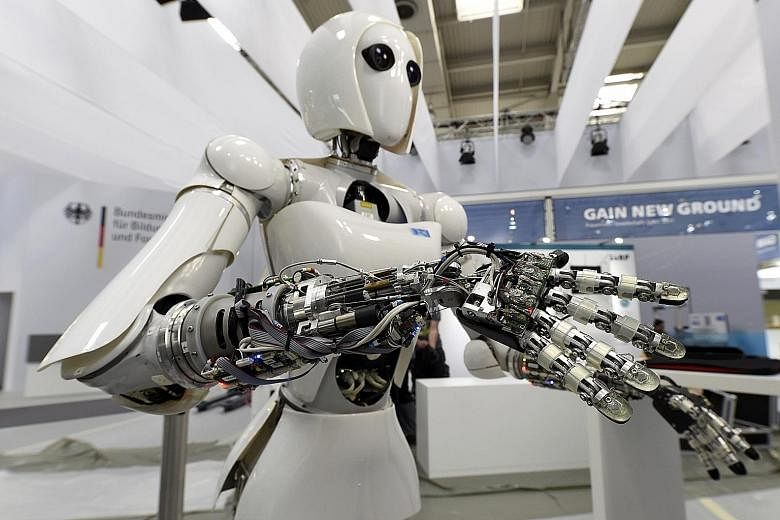LONDON • Thirty per cent of jobs in Britain are potentially under threat from advances in artificial intelligence (AI), which could lead to more than 10 million workers being replaced by robots within 15 years, according to a new report.
In some sectors, up to half the jobs could be made redundant, the report by consultancy firm PwC indicated, reported The Guardian.
While automation would boost productivity and create fresh job opportunities, PwC said action was needed to prevent the widening of inequality that would result from robots taking over low-skill tasks.
In the wholesale and retailing sector, which is the largest employer in Britain, 2.25 million jobs were at high risk, while 1.2 million were under threat in the manufacturing sector. Also, 1.1 million administrative and support services jobs were likely to be made obsolete by robots, besides 950,000 in the transport and storage space.
The biggest impact would be on workers who left school with just GCSEs or lower qualifications, according to the report. It made a case for government intervention in education, lifelong learning and job matching to ensure that the gains from automation were not concentrated in a few hands.
The report suggested that some form of universal basic income could be considered.
"There's no doubt AI and robotics will rebalance what jobs look like in the future, and that some are more susceptible than others," said Mr Jon Andrews, head of technology and investments at PwC.
"What's important is making sure that the potential gains from automation are shared more widely across society.
"Responsible employers need to ensure they encourage flexibility and adaptability in their people so we are all ready for the change.
"In the future, knowledge will be a commodity so we need to shift our thinking on how we skill and upskill future generations. Creative and critical thinking will be highly valued, as will emotional intelligence," he added.
Education plus health and social care were identified as the sectors where jobs were less at threat from robots due to the high proportion of tasks that are hard to automate.
Women also would be less in jeopardy of losing their jobs as they tend to work in sectors that require a higher level of education and social skills, PwC said. In contrast, men, who are more likely to work in sectors such as manufacturing and transport, are at higher risk of being replaced by a machine.
The report indicated that 35 per cent of male jobs were at risk, compared to 26 per cent of female jobs.
Mr John Hawksworth, PwC's chief economist, said that even though it was technically possible to replace a worker with a robot, it was not necessarily economically attractive to do so and would depend on the relative cost and productivity of machines versus those of humans, The Guardian reported.
Nevertheless, this balance is expected to shift in favour of robots as they become cheaper to produce, Mr Hawksworth said.
"A key driver of our industry-level estimates is the fact that manual and routine tasks are more susceptible to automation while social skills are relatively less automatable. That said, no industry is entirely immune from future advances in robotics and AI," he added.
"Automating more manual and repetitive tasks will eliminate some existing jobs but could also enable some workers to focus on higher value, more rewarding and creative work, removing the monotony from our day jobs," he said.
He pointed out that it was not clear the future would be different from the past in terms of how automation affects overall employment, given that prior technological advances had been accompanied by job creation.

